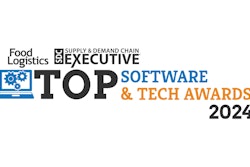
Wiliot announces the launch of WiliBot, a generative AI (GenAI) chatbot that enables natural-language conversations with any ambient IoT-connected product. When the power of generative AI is combined with this enormous source of real-time ambient physical world data, companies – and eventually consumers – can have important conversations with the products they make, source, distribute and ultimately purchase.
With WiliBot, companies will be able to converse with their products and supply chains by asking questions such as: What’s the shelf life of this product? How did it get to the store? Which product should I stock next, and why? Is this product safe to stock, and why? What is the carbon footprint of this product, and why is it so low or so high?
“Ambient IoT and generative AI are increasingly symbiotic technologies,” explains Wiliot CEO, Tal Tamir. “Ambient IoT generates vast amounts of data about trillions of everyday things, and GenAI can uniquely make sense of all that data. On the flipside, GenAI learns by analyzing vast amounts of data. To a real extent, that data has so far been finite, but ambient IoT presents massive new physical world datasets that a GenAI platform like WiliBot — and others — can use to describe products, materials, supply chains, and everything connected to the internet.”
Key Takeaways:
- Wiliot’s Ambient Data Platform uses stamp-sized, self-powered IoT Pixels affixed to products, packaging, containers, crates, pallets and more. These IoT Pixels communicate via Bluetooth information such as location, temperature, humidity and carbon footprint to the Wiliot cloud where businesses analyze the data.
- Wiliot-developed AI and machine-learning algorithms can then identify supply chain “events” and automatically generate alerts or AI responses that allow business to course-correct or optimize their operations, like when sensing that shipments of produce or pharmaceuticals have been handled at unsafe temperatures.
- In the future, this convergence of ambient IoT and generative AI will be made available to consumers in-store and at-home through an ecosystem of mobile apps – enabling consumers to speak to and converse with their products to better understand their carbon footprint, materials composition, ethical sourcing compliance, quality and safety, and more.
- In the projects, the Wiliot Ambient Data Platform revealed that food shrink accounts for roughly 5% of goods in the food chain – food that is lost, damaged, or spoiled before it reaches store shelves.
- The Wiliot platform is able solve two-thirds of these food shrink issues – ensuring a safer food supply, higher customer satisfaction, and lower costs – while WiliBot will now democratize access to these insights across the organization.


















